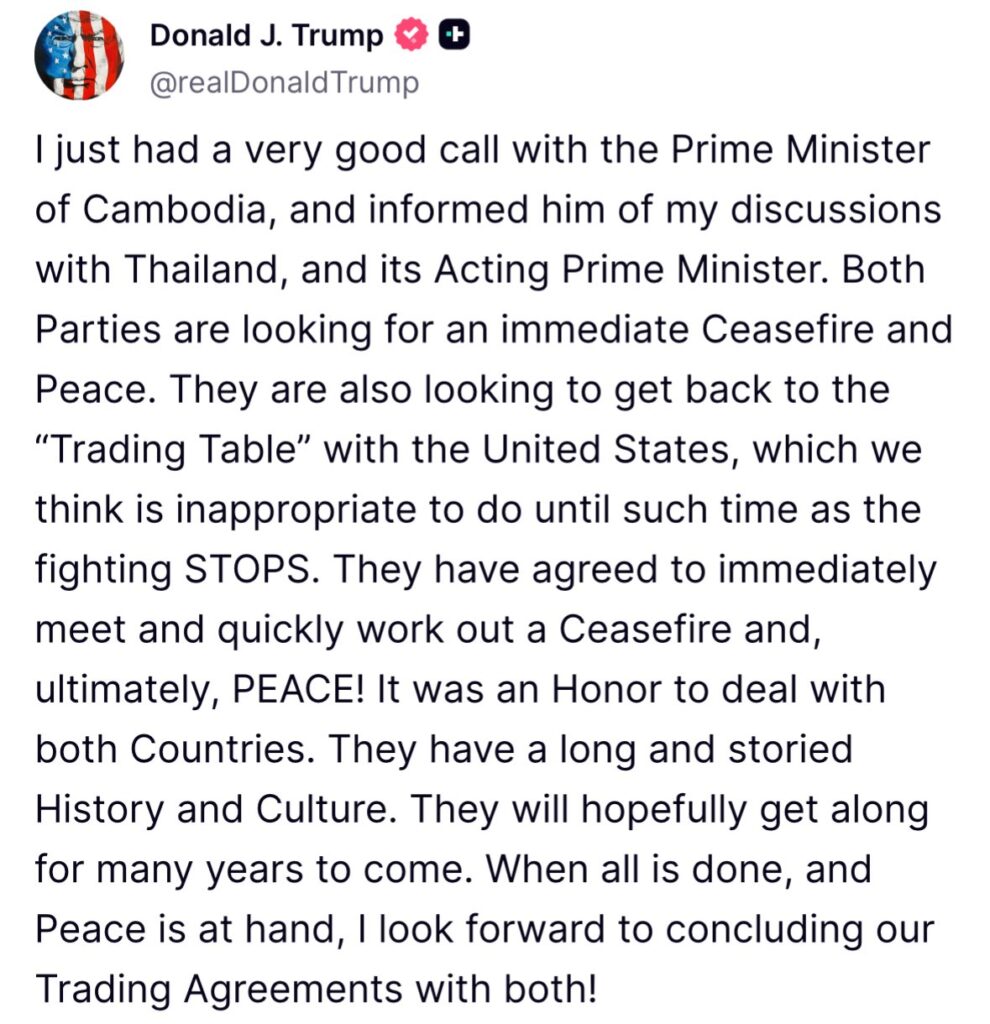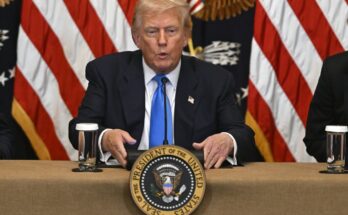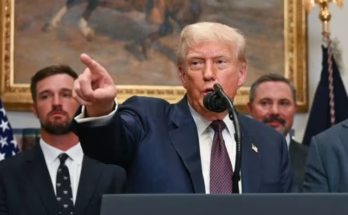After three days of escalating border clashes between Thailand and Cambodia, U.S. President Donald Trump stepped in with a surprise diplomatic intervention. Posting on Truth Social while visiting Scotland, Trump announced that he had spoken directly with Cambodian Prime Minister Hun Manet and Thailand’s Acting Prime Minister Phumtham Wechayachai, urging both leaders to agree to an immediate ceasefire.
The conflict, which erupted following the killing of a Cambodian soldier in May, intensified in late July with artillery exchanges and accusations of landmine use. Clashes spread across multiple provinces, including Trat in Thailand and Pursat in Cambodia, displacing over 130,000 people and leaving more than 30 dead.
Trump warned both nations that U.S. trade negotiations would be suspended if hostilities continued. He emphasized that peace was essential before any deals could be finalized, stating, “We happen to be, by coincidence, currently dealing on Trade with both Countries, but do not want to make any Deal, with either Country, if they are fighting.”
Thailand responded publicly, saying it agreed “in principle” to a ceasefire but demanded sincere intent from Cambodia. Cambodia, meanwhile, accused Thailand of “unlawful military aggression” and called for international condemnation.
The United Nations and ASEAN also weighed in, urging both sides to de-escalate and resume dialogue. Malaysia’s Prime Minister Anwar Ibrahim, chair of ASEAN, proposed a ceasefire framework that Cambodia supported and Thailand tentatively accepted.
Trump’s involvement was met with mixed reactions. While some praised his effort to broker peace, analysts cautioned that threatening trade leverage could backfire diplomatically. Still, Trump remained optimistic, declaring, “Ceasefire, Peace, and Prosperity seems to be a natural. We will soon see!”
The situation remains fluid, with both sides agreeing to meet, but no confirmed timeline or venue for talks. The international community continues to monitor developments closely.



